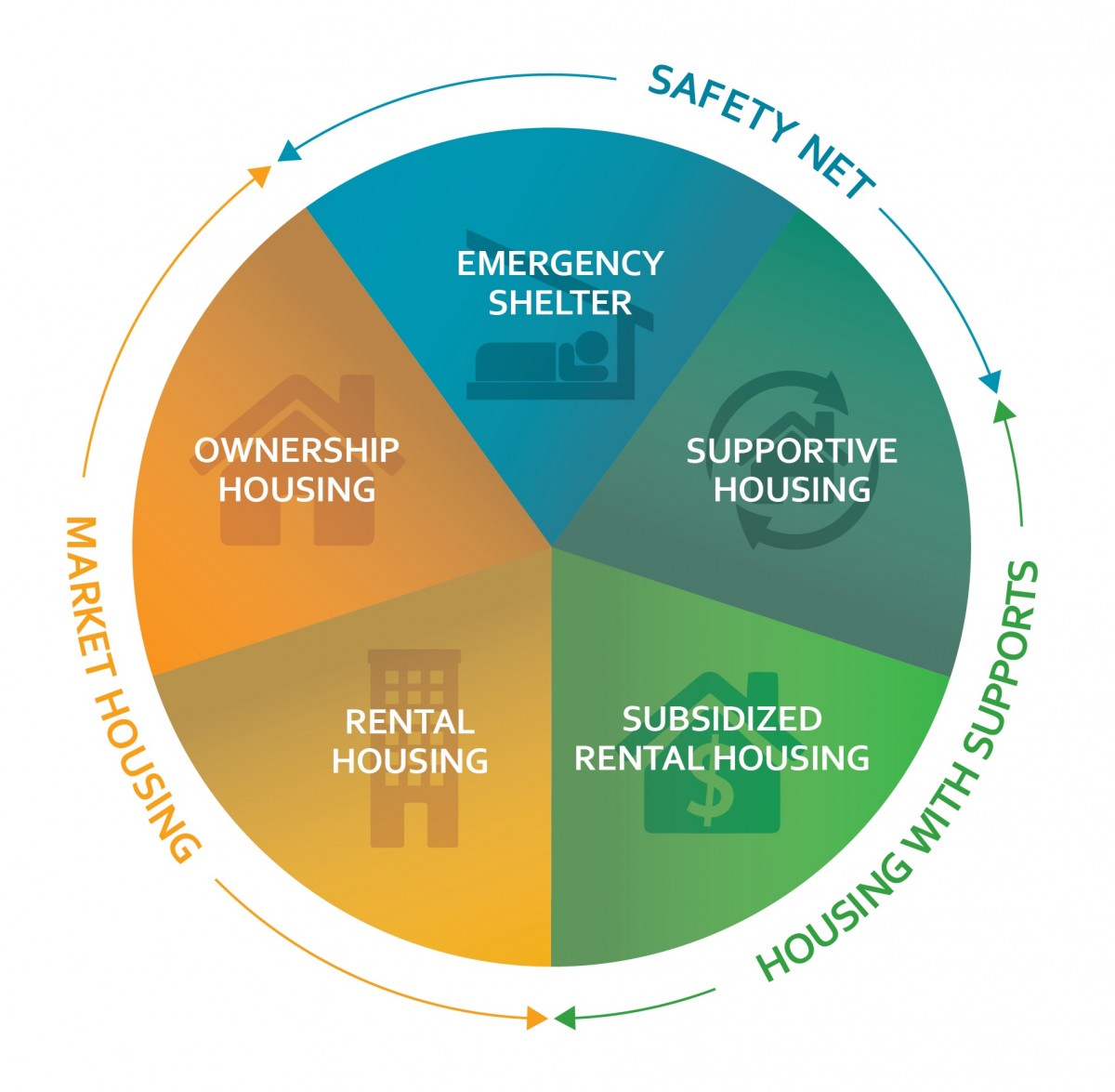Housing
Serving our community's diverse housing needs
Housing forms the basis of our neighbourhoods and plays an important role in health and overall well-being. It can provide a sense of identity, belonging and social support. Through initiatives such as the Housing Action Plan (HAP), the City is working to ensure that residents have their housing needs met.
Learn more about the the City of Kelowna’s Housing Action Plan (HAP).
The City's role in housing
The City supports housing priorities through a number of actions that are within our regulatory scope. While the factors that affect housing demand are largely beyond the control of local government, the City supports our community's housing needs through:
- regulation that determines the location and type of housing that can be built
- policies and programs that encourage development of affordable and non-market housing options
- collaboration with government, non-profit and private sector partners to deliver much-needed housing supply
- advocacy on a range of housing issues at the provincial and federal government level
The Housing Wheelhouse
The City developed a new and innovative approach to understanding housing in our community called the Wheelhouse. Whereas models of the housing system are typically linear, the Wheelhouse is circular and recognizes that people may move across categories of the Wheelhouse throughout their lives - and that home ownership is not the end goal for all residents.
Additionally, the Wheelhouse recognizes that our housing stock needs to reflect the diverse socioeconomic and demographic needs of Kelowna residents and should not focus exclusively on market housing. Finally, the Wheelhouse is an interdependent system in which people move among different housing forms, tenures and price points. As with any system, changes to one aspect of the system influence other parts of the system. The City's approach to housing looks at the system as a whole.

Imagine Kelowna | Imagine Kelowna is our community vision and its goals include: creating vibrant urban centres, healthy neighbourhoods for all, opportunities for everyone, and a fair and equitable community. Imagine Kelowna is used to help shape our priorities and provide the foundation for future strategies and projects such as the Official Community Plan (OCP). The OCP shapes how our City grows and provides a policy framework for Council by addressing issues such as housing, transportation, infrastructure, parks, economic development and the natural and social environment.
2023 Housing Needs Assessment | Following the Housing Wheelhouse framework, the 2023 Housing Needs Assessment identifies Kelowna's housing needs in the short and long term. This assessment was completed using technical analysis and community input, connecting with different groups, including service providers, Indigenous communities, and private sector organizations. In November of 2024, an Interim Housing Needs Report (HNR) was completed to meet recent changes to the Local Government Act requiring municipalities to create an HNR by January 1, 2025. The HNR builds on the 2023 Housing Needs Assessment to better understand our community’s current and future housing needs.
Housing Targets | Kelowna received a housing target order from the B.C. government on June 25, 2024. This order establishes a five-year housing target for the City of Kelowna of 8,774 net new completed housing units. The order specifies five annual progress reporting periods, as well as one initial interim report, produced and published by the City.
- Interim Report from July 1 to December 31, 2024.
Housing Action Plan (HAP) | The HAP was endorsed by Council on January 27th, 2025. This plan builds upon past and ongoing City efforts in housing and social development, addressing the housing system comprehensively. The HAP is a roadmap that responds to the critical housing challenges facing the community, ensuring that the City meets both immediate and future needs. Included in the HAP are 26 action items, including several high-impact actions. HAP actions are also aligned with actions being taken under the Housing Accelerator Fund.



